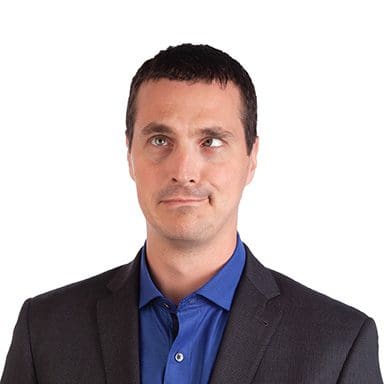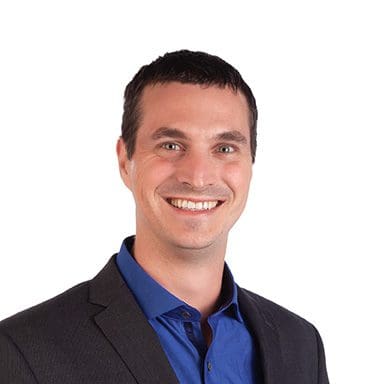Our research has shown a trend in healthcare provider feedback regarding mHealth alerts and features. While generally positive about the concept, liability is top of mind with this user group and common questions were raised during testing.
Back to team page
Sam Alper
Director
Sam’s background in human factors and industrial engineering has led to a systematic approach to problem solving, which considers both the technical and social aspects of challenges, that he applies to each project. He spent the better part of a decade investigating accidents from a human factors perspective, presenting to the Consumer Product Safety Commission and being deposed as an expert witness. Sam has a deep research background and has developed and implemented qualitative and quantitative research methodologies. Sam as a Ph.D. in Industrial and Systems Engineering from the University of Wisconsin—Madison.


Bold facts
![]() Learn more about
Learn more about

Something unique about you summed up in one sentence:

Your favorite part of working at Bold Insight:

In your spare time (or if you had spare time), you would absolutely do this:
How long have you been in the UX field?
Your favorite city in the world is...and why?

Your ultimate celebrity dinner party guest list would include:

Long-term personal or professional goal?

Any other facts to share?
Read our team’s latest bold insights
So, your recruit fell apart… now what?
With the thousands of projects managed over the years, we feel like we’ve “seen it all.” While rare, in spite of the amount of preparation and planning, sometimes things don’t go as expected.
7 insights from the 2019 HFES Health Care Symposium
HFES healthcare symposium provides insight on FDA and regulatory perspectives, use of technology in research, interesting research methods employed, and cross-industry collaboration.
Product design: Why it’s important to see behavior
As designers, we assume users will behave the way we expect them to behave. Unfortunately for us, humans are unpredictable … attempts to model behavior typically predict less than 10% of actions. Consider the Theory of Planned Behavior, which suggests behaviors depend...